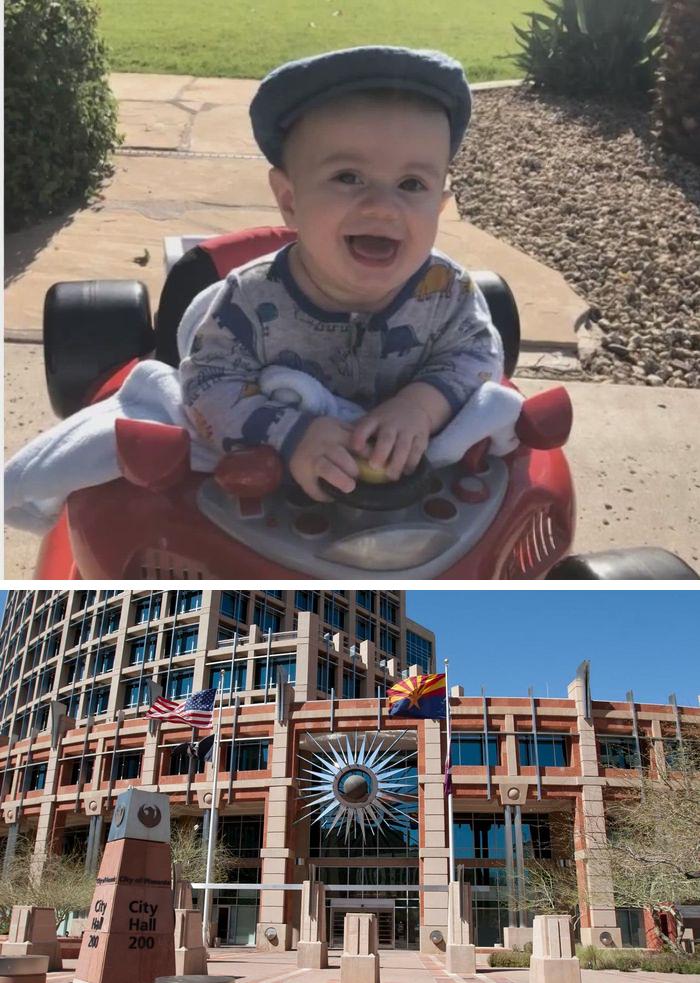Phoenix Pays $2 Million to Family of Toddler After Tragic EMS Decision Sparks Statewide Reform
A Mother's Plea and a City's Tragedy
The City of Phoenix has agreed to pay $2 million to the family of Abraham James Clugston, a 2-year-old boy who died in April 2022 just hours after emergency responders chose not to take him to the hospital. Despite clear signs of medical distress, the Phoenix Fire Department advised Abraham’s mother, Adriana Moore, to administer over-the-counter medication instead of transporting him for emergency care.
Moore had called 911 early that morning after witnessing what she described as “severe compulsive shaking” in her son. According to a wrongful death lawsuit filed by the family, she pleaded with paramedics to take him to the hospital. But after less than eight minutes at the home, emergency personnel instead told her to give the child Tylenol and Ibuprofen, saying hospitalization wasn’t necessary.
By the end of the day, Abraham was dead.
The Lawsuit and the Settlement
On June 18, the Phoenix City Council voted to approve the $2 million settlement, bringing legal closure to the case. However, for the family—and many others concerned with emergency response practices—the fight for systemic change continues.
Breann Slack, the family's attorney, emphasized that the issue goes far beyond financial compensation.
“Our clients placed their trust in the City’s first responders during a critical moment,” said Slack. “That trust was shattered when they were denied the help they desperately needed.”
Slack added that while the settlement offers some sense of closure, Abraham’s legacy will be one of reform, with the family now committed to pushing for better accountability and responsiveness from emergency services.
City of Phoenix Responds
In an official statement, the city extended its “deepest condolences” to the family and acknowledged the emotional and procedural gravity of the situation.
“Following this incident, as with any incident, an internal review was conducted, and steps have been taken to improve training and procedures,” the statement said. “The City remains dedicated to protecting the health and safety of every member of our community.”
The settlement signals a willingness to accept responsibility, but also raises questions about longstanding practices within the Phoenix Fire Department’s emergency medical protocols.
Legislative Action and Abraham’s Legacy
The tragedy prompted statewide legislative change. Just two months after Abraham's death, Arizona passed a law banning paramedics from advising patients to decline emergency medical transportation. The legislation was signed by then-Governor Doug Ducey in June 2022.
Ironically, the bill that led to the law had been introduced even before the incident by Dr. Amish Shah, a physician and then-state representative from Phoenix. The measure aimed to stop emergency responders from giving “presumptive medical diagnoses” that could discourage patients from seeking hospital care.
At the time, the bill received resistance from some emergency personnel, including Bryan Jeffries, president of the Professional Firefighters of Arizona. He argued that the legislation was unnecessary and represented government overreach.
“This bill, while very much watered down, remains a solution in search of a problem,” Jeffries said in 2022.
However, Abraham’s case made it painfully clear to many that a problem did exist, and that lives could be at stake when critical decisions are made in the field without proper medical evaluation or transport.
Broader Concerns About Patient Transport Practices
The issue of emergency medical transportation in Arizona has been under scrutiny for years. An October 2023 article published by Arizona State University’s Law Journal highlighted systemic issues, including the state’s history of controversial patient transport programs.
A 2018 initiative, for example, provided taxi vouchers to low-income individuals in non-critical situations to prevent misuse of ambulance services. Critics argue that such measures, while cost-conscious, may inadvertently discourage people from seeking emergency care when they genuinely need it.
Abraham’s case is now part of that broader conversation—an emotional and deeply personal reminder of what can go wrong when caution or cost-efficiency is prioritized over urgent medical care.
A Family’s Mission to Spark Reform
For Adriana Moore and her family, the tragedy of losing Abraham has become a rallying cry for change.
“She relied on their expertise,” said attorney Slack, referring to the mother’s trust in first responders. “Now, the family wants to make sure no other parent has to face the same heartbreak.”
The family's goal is to see Phoenix—and cities across Arizona—reform how emergency calls are handled, with more compassion, clearer accountability, and life-first decision-making. Their message is clear: no family in crisis should ever be denied the care their loved one needs.
While the $2 million settlement offers financial acknowledgment of the city's failure, the real value lies in the potential to reshape emergency response protocols and restore public trust in those sworn to protect lives.

COMMENTS (0)
Sign in to join the conversation
LOGIN TO COMMENT